Spiritualism and the New Psychology: An Explanation of Spiritualist Phenomena and Beliefs in Terms of Modern Knowledge
Chapter 8
DREAMS
By Millais Culpin
The mystery of dreams and their interpretation has occupied men’s thoughts in all ages. The Jews paid great attention to them, as the Old Testament shows, and there is evidence that the prophet Daniel had a shrewd knowledge, based upon psychological facts, concerning dream meanings.
There are probably ‘Dream Books’ still sold which purport to provide interpretations for the enquiring dreamer, but it is only in recent years that the scientific study of dreams has produced useful results.
Freud laid the foundations of our modern knowledge, but unfortunately certain parts of his theories have raised so much antagonism that the sound work he has done is still scorned and dream interpretation is regarded as fanciful; nevertheless I propose to show that in dreams we have a key to the unconscious of the dreamer.
Before attempting an explanation of dreams we must first consider sleep, which is an interruption of consciousness, so that whatever mind work is carried on in sleep is a product of dissociation. The interruption of consciousness is more or less complete, the light sleeper reacting to external stimuli, turning away from a touch or making movements to protect himself from heat or cold, whilst the heavy sleeper fails to react to these minor disturbances. The memory of occurrences in the outside world during sleep may be vaguely present in the waking stage, and some sleepers will answer questions or obey orders without waking and have little or no recollection of them afterwards. Such observations point to a resemblance between sleep and that form of dissociation called hypnosis.
In hypnosis the memories and emotions in the unconscious may be brought to the surface, and in sleep the unconscious, escaping from the control of the consciousness, sends up thoughts and feelings which manifest themselves in dreams. How far external stimuli cause or influence dreams is uncertain, but the more one investigates the less importance does one attach to physical stimuli.
The dreams of adults are concerned largely with what I describe as repressions. These repressions are buried in the unconscious, and their efforts to come into consciousness cause our apparently senseless and fantastic dreams. If we dreamed distinctly about these forgotten episodes, and remembered the dream on waking, they would come into consciousness and be recognised, but, being buried and refused admission to the wide-awake world, before entering consciousness they are so distorted as to be unrecognisable. To the mechanism that holds them down or distorts them is given the name of the ‘censor’, and the interpreter of dreams must seek to evade the censor and resolve the distorted story into its proper elements.
This method is of value in that treatment of the war-strained soldier which aims at making him face his memories and grow accustomed to them, for if a memory is repressed it tends to appear in the sufferer’s dreams, which give an opportunity for its recovery by dream analysis. The opponents of this method picture the analyst, armed with a dictionary of dream meanings, listening to a patient’s account of a dream, then giving him an explanation and persuading him to believe it; but, though a shrewd guess may often be made as to the meaning of a dream, the interpretation, to be of any value, must come from the patient. He is made to close his eyes and, visualising the dream, to describe it carefully. If it is a terrifying dream the telling of it will reproduce the feeling of terror, and appropriate questions will recall the occasion on which the same feeling first occurred. If the real incident is recalled there is an emotional outbreak which often startles the observer, who has the satisfaction of knowing that the greater the outbreak the greater will be the benefit.
Here is an example of the practical use of a dream: The patient had lost all memory of his experience in France, and this loss spread to his life before the war so that he failed to recall even his former employment; he slept badly and had terrifying dreams, one of which was as follows:
‘I was on a pleasure steamer with a lot of cheerful people; it went to sea and then entered a dark cavern. On the floor of the cavern were broken skeletons, and at the far end of the cavern was a hole with light showing through. Two pirates with cocked hats came and led seven of us up the cavern, where we saw some old men with whiskers. The pirates were quite kind and led us through another hole into a small cavern; the wall of the cavern began to fall down, so I picked up a broken sword and began to bore into the wall. Then something like a ball of fire came at me, and I woke up frightened.’
Though the reader could probably guess what the dream was about yet the man had no idea of the meaning, for the censor was still at work. He was made to close his eyes and visualise the ball of fire till he became frightened again, so frightened, indeed, that he was in a state of dissociation, his stream of consciousness being filled by the feeling of terror and only in relation to the outside world by means of the voice of the questioner. (The fact that memories restored by this method are often forgotten again as soon as the patient opens his eyes is proof of a dissociation.) At this stage he was told, ‘You felt like that in France, what was it?’ The normal stream of consciousness being cut off, the censor was now out of action, and the man, putting his hands to his head, cried, ‘It’s a Minnewerfer’, and when he became calmer told of a dug-out being blown in and several of his mates being killed. Then he was taken over the dream and made to look at the various parts and tell what they ‘turned to’. The pleasure steamer was the boat in which he went to France, the cheery people on board being other soldiers; he now recognised the place from which the boat started and the port where he landed. The cavern was a tunnel up which a captain and a sergeant-major (the pirates) had led seven men; the cocked hats resolved into the sergeant-major having a piece torn from the cloth cover of his helmet which flapped in the wind; the broken skeletons were the bodies of his slain comrades; the second cavern was the dug-out; the broken sword a bayonet which broke when he tried to dig his way out with it; the old men were German prisoners, and the ball of fire was the flash of the explosion.
All this was explained by the patient. If he had been told the probable meaning of the dream he might have believed it; but the result would have been valueless—it was necessary that he should bring up the memories himself. The dream is unusually coherent, but serves as a good example of the modern methods of dream interpretation.
Half-conscious fears or desires are often represented by symbolisms apparent to the analyst but unrecognised by the dreamer. A man told me of a dream in which he met some one whom he had defeated in a business disagreement, and, to his surprise, he shook hands with his old opponent. I told him that he felt the pricking of conscience and was desirous of making amends.
This was little more than a guess, but its truth was admitted though the dreamer said that he had hardly realised his feelings before. It is characteristic of dreams, as of the slips of the tongue discussed in Chapter I, that there is an obstacle to the dreamer’s unaided understanding of them. A simple dream of my own will illustrate this: When going upstairs at a seaside hotel my wife, noticing a stuffed bird, said to me, ‘Is that a sea-gull?’ and I answered ‘Yes’. The next morning I remembered a dream for which I could trace no cause, and said to my wife, ‘I wonder why I dreamed of my old schoolmaster last night?’ At this she asked, ‘Which one?’ and when I answered, ‘Mr. Gull’, the connection at once became obvious, though something had prevented my seeing the obvious without aid.
Since a dream is a product of dissociation, we expect to find in it the same qualities that belong to the product of other dissociations. The world of the dream is pictured as something external to the dreamer and not arising from his own mind, just as the revelations of automatic writing or the movements of the divining-rod are accepted as coming from some one or something other than the agent.
The dream taps the unconscious, the stories about poets and musicians who rise in the night-watches to pen their elusive inspirations being paralleled by the poetic imagery in the automatic writings of the Glastonbury archæologists.
Lost memories appear in the dream and the dreamer may deny the incidents. In the same way the apparently honest medium may produce a memory, more or less distorted, as a revelation, and deny that it is a memory.
The dissociated stream is hypersensitive and makes use of hints and fears that have passed unperceived by the consciousness. This use accounts for prophetic dreams, which are, like intuitions, the result of unconscious processes. In my own experience I have known but two circumstantial accounts of dream prophecies which were claimed to be fulfilled: One concerned a railway accident, and the other the destruction by fire of a distant house. Both the dreamers, who were of the male sex, had suffered from gross hysterical manifestations, or, in other words, had been woefully led astray by the unconscious concerning something other than prophecy. Accounts of prophetic dreams must always be suspect because of their origin in the unconscious and the inability of the dreamer either to interpret them or trace their origin. It is to be noted that psychologists who work at dream analysis make no mention of dream prophecies, although the fact that ‘the wish is father to the thought’ explains why a dream sometimes expresses an unconscious desire that later attains fulfilment in reality.
The Biblical account of Nebuchadnezzar’s dream of the idol with feet of clay bears the stamp of genuine history. The king, like the neurotic sufferer of to-day, ‘dreamed dreams, wherewith his spirit was troubled, and his sleep brake from him.’ The magicians, called upon to interpret, asked that the king should first tell his dream; but the king answered, ‘The thing is gone from me; if ye will not make known unto me the dream, with the interpretation thereof, ye shall be cut in pieces and your houses shall be made a dunghill.’ The magicians and astrologers, the sorcerers and the Chaldeans, failed, but the prophet Daniel took up the task and told the king his forgotten dream. We can only imagine his method, but it is possible to revive a dream by using the emotion felt on waking, and such a method, or even direct hypnosis, may have been available to Daniel; and if we regard the interpretation, not as prophetic, but as revealing to the king his forebodings of future disaster, then the chapter accords with modern conceptions of dream analysis. Nebuchadnezzar was already a psycho-neurotic on the borderline of insanity, as his subsequent history shows, and would easily come to rely upon and reward a psychologist like Daniel, who convincingly laid bare to him the working of his unconscious. By tradition the old civilisations of the East were the sources of occult knowledge, and this view of a scrap of Old Testament history gives a hint how the tradition arose. If there existed an esoteric knowledge of psychological technique such as I ascribe to Daniel, then its possessors would easily obtain reputations for more than worldly wisdom.






